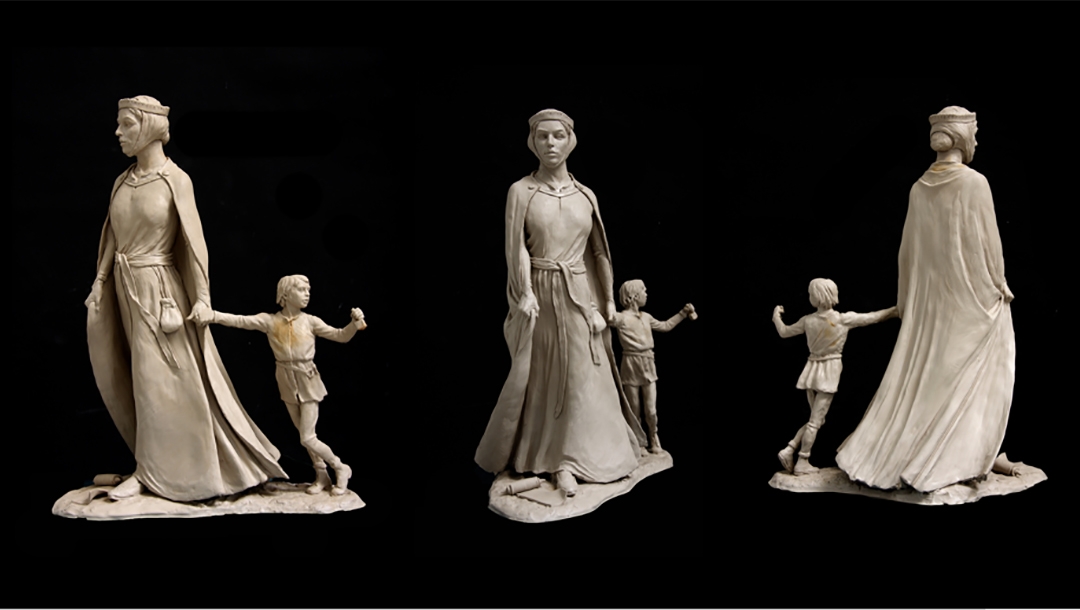(JTA) — Winchester, a city near London that preceded it as the capital of England, plans to unveil a statue honoring a Jewish woman who ran a successful business and raised four children there until her murder in 1277.
The bronze, life-size statue of Licoricia of Winchester was designed by renowned British artist Ian Rank-Broadley, The Jewish Chronicle of London reported Thursday.
A money lender, Licoricia’s clients included King Henry III and Queen Eleanor. Living in times of virulent antisemitism — her death preceded the 1290 total of expulsion of Jews from England by only 13 years — she had been jailed repeatedly before being murdered in a mysterious attack in Winchester. She was also widowed twice.
Licoricia’s links to Winchester date back to 1234. Her statue is scheduled to be erected Feb. 10 on what is now known as Jewry Street, where she lived and died. The statue depicts her holding the hand of her youngest son, Asser, who is holding a dreidel.
“The broader message is that we all benefit from letting women take an equal part in our society. It also holds up the fact that as she was Jewish she was persecuted in those times,” Rank-Broadley told the Jewish Chronicle.
Want more international stories in your inbox? Sign up for JTA’s Around the World newsletter.
SUBSCRIBE HEREThe statue features the inscription: “Love thy neighbour as thyself” from Leviticus, in English and Hebrew.
No portraits of Licoricia are known to have survived, so Rank-Broadley drew inspiration for her facial features from his own daughter and grandson, who are Jewish, he told the Chronicle.
Asser was Licoricia’s son from her second marriage to a wealthy Jewish divorcee called David of Oxford; at one point, a decade after her death, he was imprisoned in Winchester Castle while the king of England again sought to tax Jew. She also had three children with her first husband, Abraham of Kent, before he died in 1244.
Following his death, Licoricia was held prisoner in the Tower of London until a share of her husband’s estate was paid to the crown. It went to finance the rebuilding of Westminster Abbey, according to researchers who have studied the family.
Licoricia and her maid, who was not Jewish, were found dead with stab wounds to their corpses. Their murder was never solved.
JTA has documented Jewish history in real-time for over a century. Keep our journalism strong by joining us in supporting independent, award-winning reporting.






